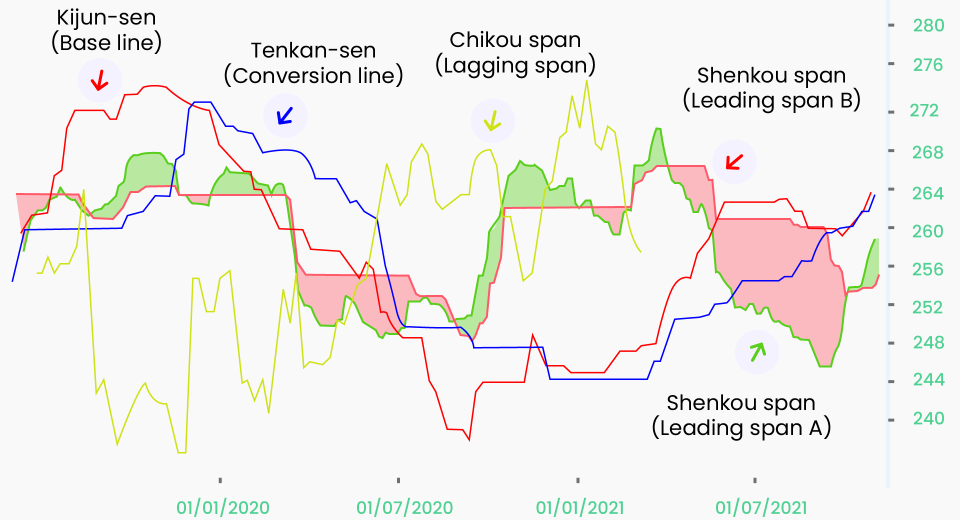May 2023 marked 12 consecutive months of positive surprises from the US non-farm payroll (NFP) report. This was the longest stretch in several decades that the NFP beat expectations! It is significant because the non-farm payroll report is the most impactful economic report for the worldwide financial markets. The report is released on the first Friday of every month at 8:30 am EST. This report sets the tone for market volatility for the entire month till the next release.
Whether a swing trader or a scalper, learning to trade the NFP is a top priority among traders. This is because the induced volatility creates multiple opportunities for traders to take advantage of.
About Non-Farm Payroll
The US Department of Labor releases the number of jobs created in non-agricultural businesses across America monthly. The report is a significant indicator of the state of the US economy and discloses the change in the number of jobs in the nation. It directly impacts the world’s reserve currency and moves global forex markets. Other major markets that move significantly due to the NFP report include bonds, equities and commodities.
In addition to farm workers, the report excludes workers at NPOs, private household workers and the self-employed. Due to its significance, analysts, investors, fund managers and traders speculate on the NFP numbers and their impact on the markets. This makes the NFP one of the most traded economic reports.
The major components of the report are:
- Revisions to previous non-farm payroll releases.
- Rate of unemployment compared to the overall workforce.
- The industries where jobs numbers have changed.
- Insights into whether hourly wages are increasing or decreasing.
Interpreting the NFP Report
Traders observe analyst forecasts and compare the actual report with them. The lower the deviation between the two, the lower the volatility in the market. For these events, the volatility is already factored into asset valuations. When the actual numbers deviate significantly from the forecast, the markets react with heavy fluctuations.
When the reported numbers fall below the forecast, i.e., fewer-than-expected jobs were created during the month, it is considered bad for the economy. A slowdown in the job market indicates a reduction in earning potential, production and economic growth. On the other hand, if the report beats expectations, it is a positive sign for the economy. However, an unexpected sharp spike for multiple months may signal impending inflation.
The NFP report also impacts the Federal Reserve’s decisions regarding interest rates. The Fed may raise interest rates if the jobs report is strong to cool down a heated economy. On the other hand, a weak jobs report may force the Fed to lower or maintain interest rates, pushing the stock market up.
How Do Traders Use the NFP Report?
Traders use the NFP report to predict currency valuations and make trading decisions accordingly. The NASDAQ suggests traders observe the trend of the non-farms payrolls for a few months to trade the event accurately. It also mentions that a 12-month average is the most accurate measure of trends in the labour market.
- Traders use other data along with the number of jobs added to get a comprehensive picture of the economic conditions of the US.
- Traders expect the US economy to gain at least 100,000 jobs every month. A higher number than that and one that beats the consensus indicates a rise in the dollar value.
- If the added jobs are below 100,000; the US economy is considered stagnant and traders tend to navigate towards high-yielding currencies over the dollar.
- The greenback rises when the unemployment rate declines and are accompanied by a growth in manufacturing payrolls. Therefore, traders will often turn towards the dollar.
- The dollar declines when the unemployment rate increases or the jobs added in the manufacturing sector decline. Traders are likely to prefer trading in other currencies.
Ways to Trade the NFP Report
Traders often turn to CFD trading, which helps them speculate in both directions, allowing them to hedge their positions simultaneously. However, they must remain cautious as CFDs are derivative instruments. This means they have low margin requirements, reducing entry barriers, and are traded with leverage. Leverage amplifies both profit potential and associated risks.
NFP or any other news release is traded in three major time slots:
1. Before Release
This is the time 15 minutes before the release.
Using consensus forecasts and other market events, traders speculate whether the report will align with expectations, miss, or beat it. This deductive reasoning helps traders take positions even before the report is out, and they can choose to hold or close their positions according to the data released. Traders employ stringent risk management measures as this strategy involves higher risk.
This is generally the time up to 15-30 minutes after the release.
As the report comes out, an initial knee-jerk reaction in the market induces volatility and creates many opportunities for traders to capitalise on. Traders need to be agile in taking advantage of the released data while the market absorbs the report.
3. During the Fade
This is generally the time for which the market maintains movement in response to the news and can last till the closing of the trading day.
The volatility slowly declines after the market has digested the news and the direction of impact is apparent. This is when some traders prefer to trade. They have clear signals of market movements. Forex traders, for instance, might wait for the spreads to narrow and come into the normal range before taking positions.
Do keep in mind the markets are volatile around the NFP release, and many traders choose not to take any positions due to increased risk.
To Sum Up
- The US releases the NFP report on the first Friday of every month.
- A decline in unemployment or an uptick in hourly wages is a positive sign for the economy.
- Traders often use other supplementary data to gauge the overall state of the US economy.
- Poor job creation numbers signal a weak economy, while higher-than-expected numbers indicate strength.
NFP can be traded before, after, or during the news fade.
Disclaimer:
All data, information and materials are published and provided “as is” solely for informational purposes only, and is not intended nor should be considered, in any way, as investment advice, recommendations, and/or suggestions for performing any actions with financial instruments. The information and opinions presented do not take into account any particular individual’s investment objectives, financial situation or needs, and hence does not constitute as an advice or a recommendation with respect to any investment product. All investors should seek advice from certified financial advisors based on their unique situation before making any investment decisions in accordance to their personal risk appetite. Blackwell Global endeavours to ensure that the information provided is complete and correct, but make no representation as to the actuality, accuracy or completeness of the information. Information, data and opinions may change without notice and Blackwell Global is not obliged to update on the changes. The opinions and views expressed are solely those of the authors and analysts and do not necessarily represent that of Blackwell Global or its management, shareholders, and affiliates. Any projections or views of the market provided may not prove to be accurate. Past performance is not necessarily an indicative of future performance. Blackwell Global assumes no liability for any loss arising directly or indirectly from use of or reliance on such information herein contained. Reproduction of this information, in whole or in part, is not permitted.





